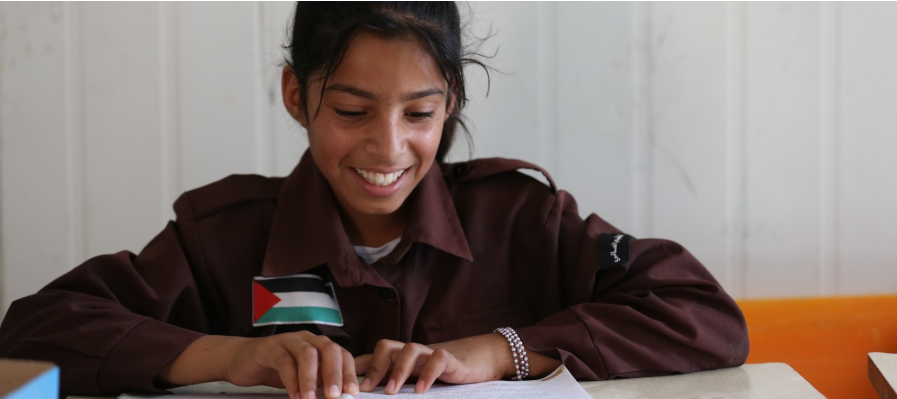UNESCO: UNESCO and Global Education Coalition partners organize online training to support teachers and students in Palestine
date:2020-06-23 15:28author:adminsource:UNESCOviews:

Since early March 2020, 1.43 million children across Palestine have become dependent on distance learning as a result of school closures due to the COVID-19 pandemic.
To respond to their needs, the Ministry of Education, together with the Education Cluster, developed a National Response Plan for COVID-19 focusing on four areas: hygiene, infrastructure, psychosocial support, and distance learning. UNESCO Ramallah, as the lead agency for the Distance Learning Thematic Group, is working closely with the Ministry to identify main areas of interventions, such as teacher training to enhance distance learning in Palestine.
In this context, the Ministry of Education and UNESCO conducted a training workshop with Lark, a partner of the Global Education Coalition. It was attended by 125 teachers and supervisors from the different directorates in Palestine as well as teachers from private schools and the United Nations Relief and Works Agency for Palestine Refugees (UNRWA).
The workshop focused on a set of practical questions: How to set up a remote classroom? How to use the Lark platform? How to communicate with students and parents?
Opening the training, Dr Ahmed Ammar, Director General of the supervision department at the Ministry of Education in Palestine, described the new reality: “As you know, COVID-19 has changed our different customs and lifestyle. Therefore, it must change learning methodologies, teachers, students and parents’ roles.” He expressed strong appreciation to UNESCO for supporting the Ministry with distance learning projects.
Lina Benete, Head of the Education Unit at UNESCO Ramallah, highlighted the challenges: “This exceptional situation makes us rethink and relearn some of our long-standing practices. Experience shows that in addition to adapting content and curriculum for remote learning and teaching, it is also crucial to consider the technological aspects, which are essential to maintain and deliver quality education.”
Learning digital skills to set up remote classrooms at home
The workshop started with a demonstration on the use of the different functionalities and tools of Lark. A professional trainer from the Lark team based in Singapore guided participants step by step in downloading and setting up the application. Once everyone was logged in, they explored different functionalities and how to use them in the context of education. Such tools included group chat, video conferencing, cloud documents collaboration or calendar, skills that can also be applied to other similar online tools.
Participants asked questions directly to the trainer during the demonstration such as: What are the benefits of Lark compared with other applications? Is it free of use? Which languages are available? Will Arabic language be added in the near future? Following the demonstration, participants also raised many other questions on the practical use of the application.
A self-help tutorial was shared with the trainees to continue practicing. Lark, UNESCO and the Ministry are ensuring a follow-up with the teachers to evaluate and help in applying the skills learnt during the workshop for setting up remote classrooms at home. In this perspective, UNESCO is working with the Ministry to establish a focus group and identify a local institute to work with on the pilot test of distance learning. The recording of the workshop was shared with the trainees for future use.
An evaluation survey showed a significant increase in the confidence of users with communications tools such as Lark. Randa Hisham Mohammad Faqi from the Directorate of Education in Nablus, noted in her evaluation of the workshop: “The presentation was clear and easy to apply after the workshop”. Based on the analysis of the survey results, further follow up will be arranged.
Since capacity building for teachers is crucial in enhancing distance learning, more training workshops will be conducted in the future on other distance learning tools in a continued cooperation between UNESCO, Global Coalition’s partners, the Ministry, teachers, and the education workforce.
A series of virtual trainings in Pacific countries was carried out in in May with trainers from Lark, Khan Academy and Moodle, all partners of the Global Education Coalition.

